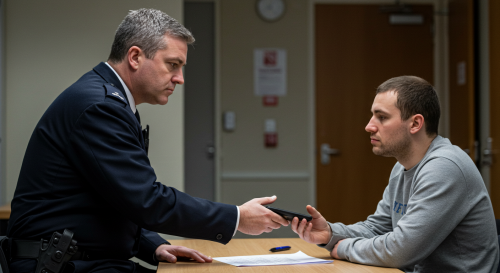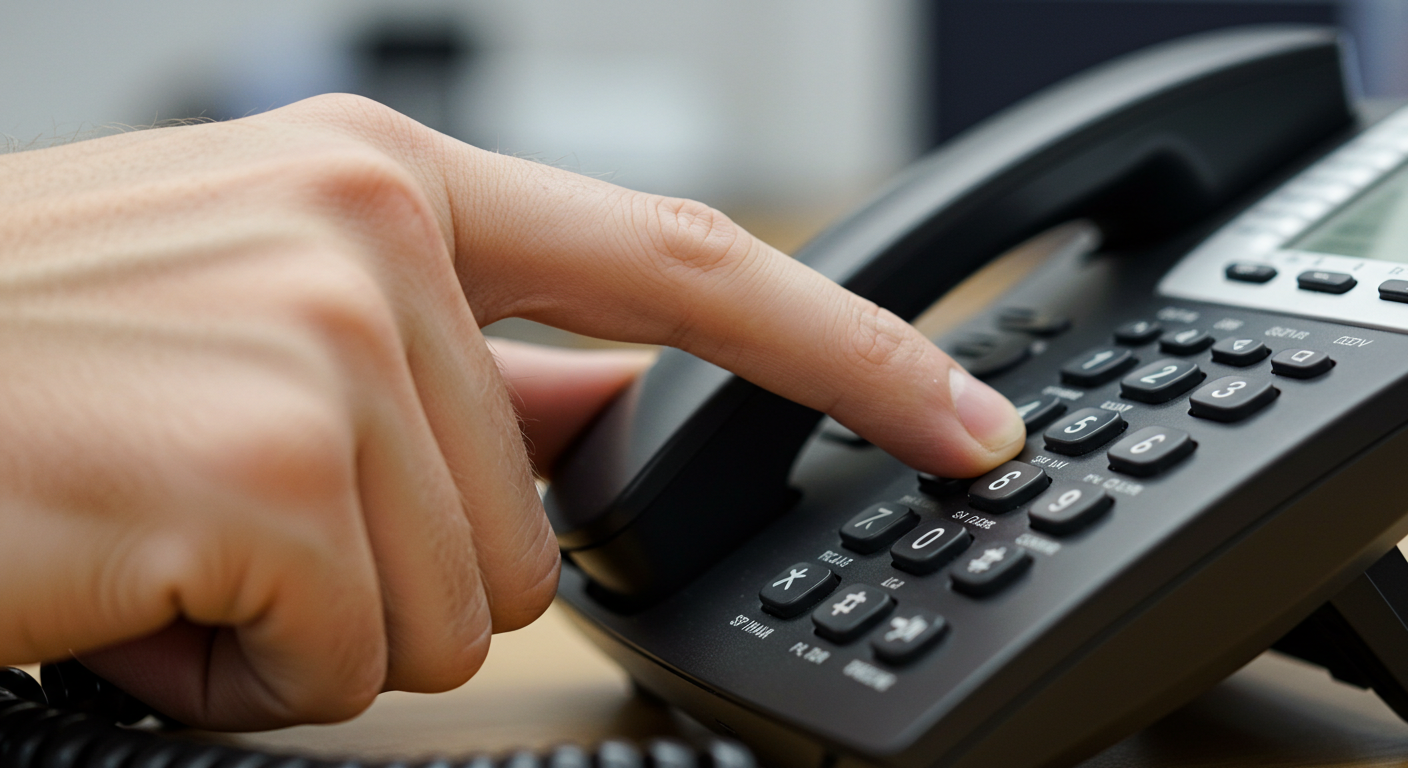Can You Contact Your Family While Being Held at A Police Station?

Can You Contact Your Family While Being Held at A Police Station?
When being held at a police station, it is vital to be aware of your rights and the options available to you, including the ability to contact your family.
Can You Really Contact Your Family While Being Held at a Police Station?

The ability to contact your family while in police custody is an important consideration. To understand your rights fully, it is necessary to examine what the law says about this matter.
According to legal guidelines, individuals who are being held at a police station have the right to inform their family of their situation. However, there may be certain exceptions to this rule based on specific circumstances.
There are several ways to contact your family while being held at a police station. These options include informing the Officer In Charge of your desire to contact your family, requesting a phone call, or reaching out to your family through legal representation.
When contacting your family while in police custody, you may share essential information about your situation. This can include informing them of your current status, seeking advice or legal assistance, and updating them on any developments.
In the event that you are denied contact with your family while being held at a police station, it is crucial to understand your rights. This section will discuss steps you can take, such as documenting the denial, seeking legal aid, and asserting your rights.
When contacting your family during your time in police custody, there are additional considerations to keep in mind. These include ensuring privacy and confidentiality, especially in sensitive legal situations, and addressing any language barriers that may exist.
By understanding your rights, knowing the available options, and being aware of the relevant legal considerations, you can navigate the process of contacting your family while being held at a police station.
Understanding Your Rights at the Police Station
When being held at a police station, it is crucial to understand your rights at the police station and what you are entitled to. Understanding your rights at the police station includes the ability to contact your family and notify them of your situation.
By comprehending and exercising your rights at the police station, you can make well-informed decisions about when and how to reach out to your loved ones for support. This can provide comfort and assistance during a potentially stressful and uncertain time.
Remember, it is important to know and exercise your rights in order to protect yourself and ensure a fair process.
Can You Contact Your Family While Being Held at a Police Station?
When you’re being held at a police station, can you contact your family? It’s important to know that this right can vary depending on the jurisdiction and the circumstances of your detention.
In many countries, you are allowed to make at least one phone call to inform your family of your situation.
There may be restrictions on the duration of the call or the information you can share. Therefore, it’s always recommended to cooperate with the authorities and ask for the opportunity to contact your family as soon as possible.
What Does the Law Say?
The law provides rights to individuals held at a police station regarding contacting their family. According to these rights, individuals have the right to inform the officer in charge about their desire to contact their family. They can request a phone call or contact their family through legal representation.
The law emphasises the importance of maintaining privacy and confidentiality during these communications. It is essential to understand that there may be exceptions to this rule, depending on the specific circumstances of the case. It is crucial to be aware of these rights and document any denial of contact with your family, seeking legal aid if necessary.
Are There Any Exceptions to the Rule?
There may be certain exceptions to the rule when it comes to contacting your family while being held at a police station. These exceptions depend on specific circumstances and legal requirements.
For example, in situations where contacting your family might jeopardise an ongoing investigation or pose a threat to the safety of others, the police may restrict or deny your access to communication.
If you are suspected of involvement in organised crime or terrorism, the authorities may impose further limitations on your communication rights. It is important to understand that these exceptions are determined within the boundaries of the law and are subject to legal interpretation.
How to Contact Your Family While in Police Custody

Informing the Officer In Charge
When detained at a police station, it is essential to communicate with the officer in charge by informing them about your intention to inform your family.
Make sure to respectfully convey your desire to contact your family and provide any necessary contact details. It is crucial to clearly state your intention and cooperate in a polite manner throughout the entire process.
In certain situations, it may be advisable to involve legal representation to convey this information, particularly if you are denied direct communication with your family members.
Requesting a Phone Call
Requesting a phone call while being held at a police station is an extremely important step in reaching out to your family. It is crucial to be aware of your rights and understand the process involved. Here are some essential steps to follow:
1. Inform the Officer In Charge: Clearly communicate your desire to make a phone call to your family to the officer in charge.
2. Request a Phone Call: Politely ask the officer for permission to make a phone call and provide them with all the necessary information, including the phone number you wish to dial.
3. Contacting through Legal Representation: If you have legal representation, inform them about your intention to contact your family and seek their assistance in facilitating the call.
Remember, maintaining communication with your family during this time is crucial for support and guidance. By following these steps, you can exercise your right to request a phone call.
Contacting through Legal Representation
When you are held at a police station, one option for contacting your family is by utilising legal representation. Contacting through legal representation allows for the intervention of legal representatives who can serve as intermediaries between you and your family, ensuring that important information is relayed accurately.
These professionals can also provide guidance on your rights and assist you in navigating the legal process. Moreover, contacting your family through legal representation may offer an additional layer of protection and confidentiality.
However, it is essential to note that the possibility of utilising this option can be contingent upon the specific circumstances and regulations in your jurisdiction. Therefore, it is highly recommended that you consult with your legal representative to fully comprehend the available options to you.
What Information Can You Share with Your Family?
Informing Them of Your Situation
- Inform the police officer in charge about your situation and request permission to inform your family.
- Ask for a phone call to directly update your family members about your current circumstances.
- If necessary, seek legal representation to assist you in reaching out to your family and providing them with updates.
By informing your family, you will ensure their awareness and support, and you may also receive guidance or legal assistance if needed. It is important to consider privacy and confidentiality during communication and address any language barriers that may exist.
Seeking Advice or Legal Assistance
When detained at a police station, it is essential to seek advice or legal assistance. It is crucial to inform the officer in charge of your need for legal representation. You should also request a phone call to contact a lawyer or seek advice from a trusted source.
It is important to communicate significant information to your family through legal representation and seek their guidance. In case you are denied contact with your family, it is essential to understand your rights, document the denial, and immediately seek legal aid.
Additionally, when reaching out to your family for advice or legal assistance, consider factors such as privacy and confidentiality, as well as any language barriers that may exist.
What If You Are Denied Contact with Your Family?

Understanding Your Rights
Understanding your rights while being held at a police station is crucial to protecting yourself and ensuring fair treatment. Here are the key considerations to incorporate
- Familiarise yourself with the law: Understand what the law says regarding your right to contact your family during police custody.
- Informing the officer in charge: Assert your right to contact your family and inform the officer in charge of your desire to do so.
- Requesting a phone call: Ask for permission to make a phone call to your family. Be aware of any restrictions or limitations imposed by the police.
- Contact through legal representation: If you are unable to contact your family directly, request your lawyer to inform them about your situation.
- Document any denial: Keep a record of any denial to contact your family. This documentation can be helpful if you need to take legal action later.
- Seeking legal aid: If your rights are consistently denied, seek legal assistance to ensure your rights are upheld.
Documenting the Denial
Documenting the denial of contact with your family while being held at a police station is of utmost importance for safeguarding your rights. By creating a comprehensive record of the refusal, you can present substantial evidence of any potential violations that may have taken place. To properly document the denial, follow the steps below:
1. Make sure to note down the exact date, time, and all pertinent details surrounding the incident, including the names of the law enforcement officers involved.
2. Whenever feasible, request a written explanation from the officer or urge them to officially record the denial within their reports.
3. In case there were witnesses present during the incident, collect their contact information as it might prove valuable for future testimonies.
4. Retain copies of any forms of communication, such as emails or letter,s that pertain to the denial.
5. It is crucial to seek advice from a legal professional who can provide guidance on the appropriate legal measures to be taken next.
Remember, documenting the denial plays a pivotal role in ensuring accountability and protecting your rights throughout such circumstances.
Seeking Legal Aid
Seeking legal aid while being held at a police station is crucial to protect your rights and navigate the legal process effectively.
Understanding your rights: Consult with a lawyer to ensure you fully understand your rights and the charges against you.
Documenting the denial: If you are denied contact with your family or legal representation, document the incident to strengthen your case.
Seeking legal assistance: Reach out to a solicitor to provide guidance and representation during your time in custody.
Notice: Informational Content Disclaimer
The content provided on this website, including articles, blog posts, and other informational materials, is intended for general informational purposes only. It is not intended as, and should not be considered, legal advice.
Visitors to this website should be aware that the information presented here is not a substitute for seeking legal advice from a qualified solicitor or legal professional. Each individual's legal situation is unique, and the information provided may not be applicable to specific circumstances.
If you require legal advice or have specific legal questions, we encourage you to contact us directly. Our experienced team of solicitors is here to assist you with your legal needs and provide tailored advice to address your concerns.
Please be advised that any communication through this website, including the use of contact forms or email, does not create a solicitor-client relationship. Confidential or time-sensitive information should not be sent through this website. To establish a solicitor-client relationship and discuss your legal matters in detail, please contact us for a consultation.
We strive to provide accurate and up-to-date information, but we make no representations or warranties regarding the accuracy, completeness, or suitability of the information contained on this website. We shall not be liable for any reliance placed on the information provided herein.
Thank you for visiting our website. We look forward to the opportunity to assist you with your legal needs.




